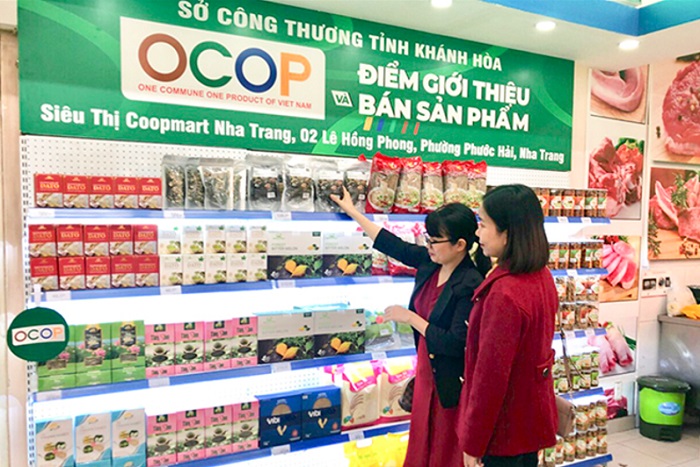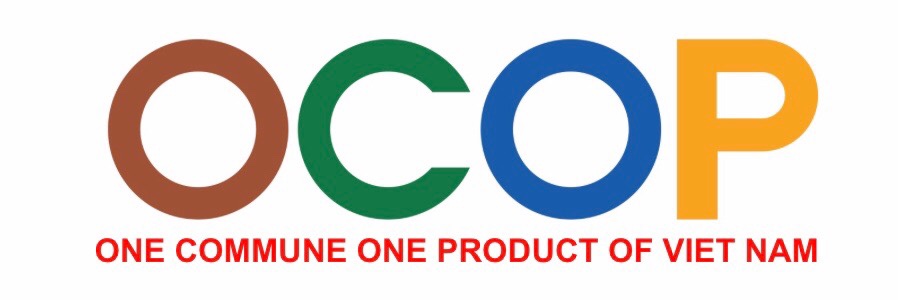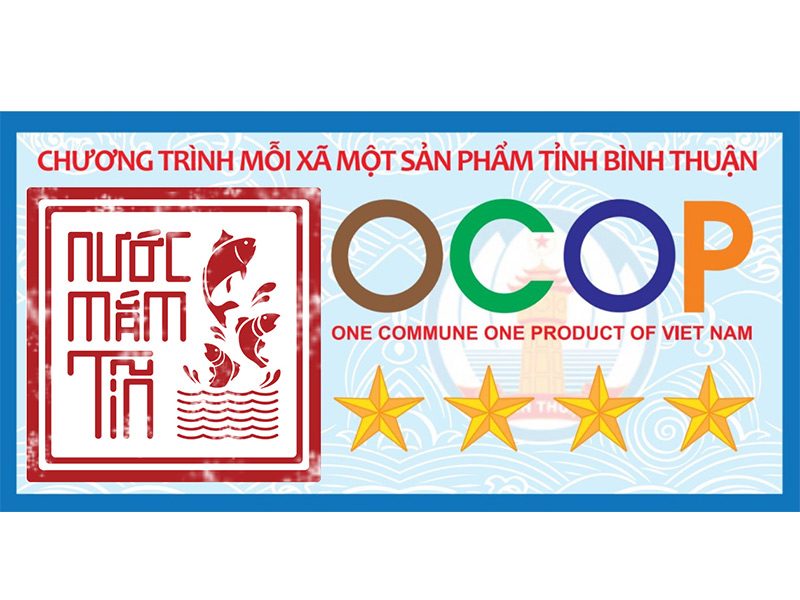[OCOP là gì?]

Executive Summary

OCOP, or One Commune One Product, is a Vietnamese government initiative designed to boost rural economies by identifying and developing unique, high-quality products from each commune. This program focuses on improving product quality, branding, and market access for these locally produced goods, ultimately enhancing the livelihoods of rural communities. This comprehensive guide will delve into the intricacies of OCOP, exploring its goals, implementation strategies, and the significant impact it has on the Vietnamese economy and its rural populations. We’ll examine the critical subtopics vital to understanding the program’s success and its future potential.

Introduction
Vietnam’s rural development has long been a focus for economic growth and poverty reduction. The OCOP program represents a significant step forward in achieving these goals. By focusing on the unique strengths of individual communes, OCOP leverages local resources and craftsmanship to create thriving businesses and contribute to national economic development. This program doesn’t just focus on production; it encompasses branding, marketing, and sustainable practices, ensuring long-term economic viability and social responsibility. Understanding OCOP is crucial for anyone interested in Vietnam’s economic landscape, rural development initiatives, or sustainable business models.
Frequently Asked Questions
What is the primary goal of the OCOP program? The main goal is to improve the livelihoods of rural communities in Vietnam by developing and promoting high-quality, locally produced products. This involves enhancing production techniques, building strong brands, and improving market access for these goods.
How does OCOP differ from other rural development programs? While other programs may address rural development more broadly, OCOP is unique in its focus on selecting a single product for each commune to champion. This concentrated effort allows for targeted support and greater impact on brand building and market penetration.
What kind of products are typically featured in the OCOP program? OCOP products are incredibly diverse, reflecting the rich agricultural and cultural heritage of Vietnam. They range from agricultural products like specialty coffees and teas to handcrafted goods such as ceramics, textiles, and lacquerware. The unifying factor is the high quality and unique character of each product.
Product Development and Quality Control
The foundation of OCOP lies in developing high-quality products. This involves meticulous attention to production processes, sourcing of raw materials, and quality assurance. Each commune identifies its most promising product, and the government provides support for improving production techniques, investing in modern equipment, and implementing quality control measures.
Technical Assistance: OCOP provides technical experts to assist communes in refining their production processes and adopting best practices. This might involve training in modern farming techniques, improving processing methods, or implementing quality control systems.
Technology Upgradation: Access to better technology is crucial. OCOP often facilitates the acquisition of modern equipment, enabling communes to increase efficiency, improve product quality, and scale production sustainably.
Raw Material Sourcing: Ensuring consistent access to high-quality raw materials is vital. OCOP supports initiatives that secure reliable supply chains, promoting local sourcing and fair trade practices.
Quality Certification: Obtaining relevant quality certifications (e.g., ISO, organic certification) builds trust with consumers and opens up access to wider markets, both domestically and internationally.
Standardization of Products: Creating clear production standards ensures consistency in the quality and characteristics of the final product, which is vital for establishing a strong brand identity.
Packaging and Presentation: Attractive and informative packaging is essential to create a positive first impression. OCOP guidance helps communes improve product presentation and branding.
Branding and Marketing
Successful product development is only half the battle. Effective branding and marketing are crucial for ensuring the success of OCOP products. This involves creating a compelling brand story, developing effective marketing strategies, and accessing diverse sales channels.
Brand Development: Creating a unique and memorable brand identity is vital. This includes developing a strong brand name, logo, and visual identity that reflects the unique characteristics of the product and its origins.
Marketing Strategies: OCOP provides support in developing effective marketing campaigns, utilizing both traditional and digital channels to reach target consumers. This might involve participation in trade fairs, online marketing, or collaborations with retailers.
Market Access: Expanding market access is a key objective. OCOP facilitates connections with distributors, retailers, and export markets, opening up new opportunities for sales and revenue generation.
E-commerce Integration: Leveraging e-commerce platforms is crucial in the modern market. OCOP helps communes establish online presences, enabling direct sales to consumers and reaching broader markets.
Tourism Integration: Many OCOP products are closely tied to local culture and heritage. OCOP works to integrate these products into tourism experiences, creating additional sales opportunities and showcasing the rich cultural heritage of the communes.
Public Relations and Storytelling: Communicating the story behind the product—its origins, craftsmanship, and the community it supports—can be incredibly powerful. OCOP helps craft compelling narratives that resonate with consumers.
Sustainable Development and Environmental Protection
OCOP isn’t just about economic growth; it’s also about promoting sustainable development and environmental protection. This involves adopting environmentally friendly practices throughout the production process, preserving natural resources, and minimizing the environmental impact of the chosen products.
Sustainable Production Practices: OCOP encourages the adoption of eco-friendly farming and manufacturing methods, minimizing waste and pollution. This might involve using organic farming techniques, reducing water consumption, or using renewable energy sources.
Environmental Certifications: Obtaining relevant environmental certifications (e.g., organic, fair trade) can significantly enhance the appeal of OCOP products to environmentally conscious consumers.
Resource Management: Sustainable resource management is crucial. OCOP promotes responsible use of natural resources, ensuring the long-term viability of the chosen product and protecting the environment.
Community Involvement: Involving the local community in environmental protection efforts is vital. OCOP often supports initiatives that promote awareness and participation in sustainable practices.
Waste Management: Minimizing waste generation and implementing effective waste management practices are crucial for sustainability. OCOP assists communes in adopting responsible waste management systems.
Carbon Footprint Reduction: Reducing the carbon footprint of the product is an increasingly important consideration. OCOP encourages the adoption of carbon-reducing practices throughout the production and distribution process.
Government Support and Policy Framework
The success of OCOP is heavily reliant on strong government support and a well-defined policy framework. This includes providing financial assistance, technical expertise, and regulatory support to participating communes. It also involves creating a conducive environment for investment and market access.
Financial Incentives: OCOP provides various financial incentives to participating communes, such as grants, subsidies, and low-interest loans to support product development, infrastructure improvements, and marketing activities.
Regulatory Support: The government plays a role in streamlining regulations and simplifying bureaucratic processes to make it easier for communes to participate in the program and operate their businesses.
Infrastructure Development: Investing in infrastructure, such as roads, transportation, and communication networks, is essential for facilitating market access and improving the efficiency of production and distribution.
Capacity Building: Providing training and capacity-building opportunities for commune officials and producers is vital for ensuring the long-term success of the program.
Monitoring and Evaluation: Regular monitoring and evaluation are crucial to assess the impact of the program and make adjustments as needed to optimize its effectiveness.
Policy Consistency: A consistent and supportive policy environment is vital to attract investment and ensure the long-term sustainability of the OCOP program.
Community Empowerment and Social Impact
OCOP is not just about economic development; it’s about empowering communities. By creating opportunities for income generation, the program fosters social cohesion, reduces poverty, and improves the overall quality of life in rural communities.
Income Generation: The primary social impact of OCOP is the creation of income-generating opportunities for rural communities, leading to improved livelihoods and reduced poverty.
Job Creation: The expansion of OCOP businesses leads to job creation, both directly in the production process and indirectly in supporting industries.
Social Cohesion: Collective participation in the OCOP program fosters a sense of community ownership and strengthens social cohesion among residents.
Improved Infrastructure: The investments made in infrastructure as part of the OCOP program often have wider community benefits, improving access to essential services and amenities.
Skill Development: Participation in OCOP often involves training and skill development opportunities for community members, enhancing their employability and overall human capital.
Cultural Preservation: Many OCOP products are closely linked to local cultural traditions and heritage. By promoting these products, OCOP helps preserve valuable cultural assets and traditions.
Conclusion
The One Commune One Product (OCOP) program stands as a remarkable example of how targeted, community-focused initiatives can drive significant economic and social progress. By focusing on the development and promotion of high-quality, locally produced goods, OCOP not only boosts the incomes of rural communities but also contributes substantially to Vietnam’s overall economic growth. The program’s multifaceted approach, incorporating elements of product development, branding, marketing, sustainable development, and strong government support, demonstrates a comprehensive and effective model for rural development that can inspire similar initiatives in other developing countries. The continued success of OCOP hinges on maintaining strong government commitment, adapting to evolving market demands, and consistently supporting the innovative spirit of Vietnam’s rural communities.
Keywords
OCOP, One Commune One Product, Vietnam, Rural Development, Sustainable Development
